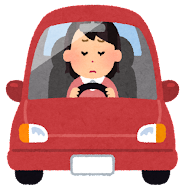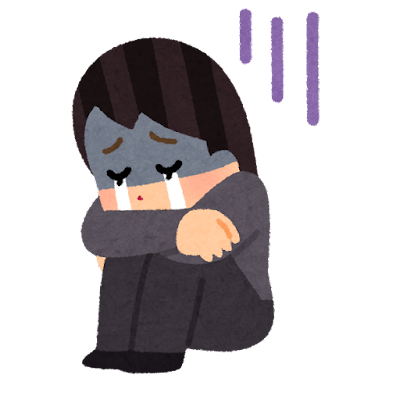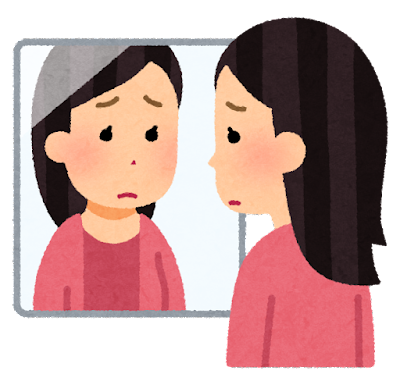What is After School/Work
Restraint Collapse?
author/ amanda/ september 01, 2023
What is Restraint Collapse?
Restraint collapse refers to a phenomenon where AuDHD girls and women who experience sensory overload, stress, or masking during their school or work hours may have a sudden and intense emotional and physiological response once they are in a more comfortable or safe environment, such as their home and/or bedroom.
For neurodivergent girlies, the sensory and social demands of school or work can be overwhelming. They may engage in masking daily, suppressing the behaviors that come to them naturally, which can be mentally and emotionally exhausting. Masking can be so draining and damaging that girls and women often lose who they truly are in an attempt to blend in naturally with those around them. This is especially true if you have rejection sensitivity and feel that you must seamlessly assimilate with those around you in order to be accepted by them. Sensory sensitivities can also cause stress, leading to sensory overload. This can include being overwhelmed by stimuli like bright lights, loud noises, or crowded spaces. You may not even realize these things are overstimulating in the moment until after the fact, having dealt with them all day, holding yourself together. It’s the accumulation of a day’s demands that can cause girls and women with AuDHD to be pushed over the edge into restraint collapse. School and work regularly demand so much from girls and women already which definitely doesn’t help the situation.

At Work

Leaving Work

At Home
After leaving the demanding school or work environment, restraint collapse can occur. This is due to the individual finally feeling safe enough to release the stress, emotions, and feelings that were building up throughout the day. This release can manifest as crying, shaking, meltdowns, shutdowns, and more. They can be internal or external in nature. Girls and women often mention being rude or hurtful to those they love the most after coming home from a long day of school/work. This is not intentional however, and is a result of finally feeling safe after a day of intense demands. The accumulated strain is a lot to deal with which is why AuDHD girlies can sometimes feel like an entirely different person at home versus their school/work life. This can even cause identity confusion. You may be a model student or employee outside of the home, but your family members may wonder how this is possible based on what they see and experience from you and your behavior at home. You may constantly question why you’re like this, but struggle figuring out what the cause is or how to make it stop. You may also feel guilty after treating your family in a way you did not intend due to the overwhelm. It’s stressful to feel out of control!
Some girls and women with AuDHD may need a significant amount of time to themselves prior to engaging with their family members. This unfortunately may cause their family members to see them as volatile, emotional, or moody. This is a seriously difficult situation to be in! Regardless of how much she loves and cares for her family, a simple question like, “How was your day at school/work today?” can set a neurodivergent girlie over the edge. She may appear aloof, distant, or cold due to being so exhausted by her day that the question feels impossible to answer and she lacks the energy to engage. Similarly, family members stating, “Oh, look who decided to show up!” when an AuDHD girlie rejoins the family after decompressing from the overwhelming day is extremely hurtful. Without a doubt, heading right back to her room crosses her mind instantly after a comment like this.

"Just leave me alone!"

"Why am I like this?"
Helping to Combat Restraint Collapse
It’s crucial to approach this situation with sensitivity and understanding. AuDHD girls and women might need a quiet, safe space to decompress after school or work. Creating a supportive environment where they can freely express their emotions without judgment can help prevent restraint collapse. It’s important to discuss this with family members so they know what to expect when their AuDHD girlie returns home. Eating food/snacks and drinking water or an electrolyte drink immediately upon returning home may be beneficial to lessening the effects of restraint collapse. Taking a nap, engaging in mindless digital entertainment, and lowering the lights may also help.
Keeping home life separate from school/work life is also vital to preventing restraint collapse. When you get home, it should be your number one priority to take off your shoes, remove your outside clothes, and put comfortable house clothes on. If you have the energy, a shower or bath may also be beneficial. These tips may help your mind separate the outside world from the comfort of your home. Though it is not always possible, not bringing school or work home with you is optimal. If this can’t be avoided, designate a specific place in your house that is strictly for homework or work. Ideally, this space should NOT be in the room in which you sleep. Do not engage in these activities until after you have regenerated your body and mind after the stressful day.
This can be particularly challenging if you are a woman with a child or children. Unfortunately you might not get the chance to decompress how you’d hope due to needing to remain “on” even after you’ve arrived home. Though you might not be able to combat restraint collapse in the way that would be most beneficial to you, try to create small, more manageable changes that can lead you in the right direction. Communicate these needs to family members as necessary and ultimately, be kind to yourself. Setting healthy and effective boundaries with family members ahead of time can go a long way in mitigating a restraint collapse meltdown.
Lastly, advocating for yourself regarding accommodations at school or work, such as through sensory breaks or reduced stimuli, can minimize the stressors that contribute to restraint collapse. If you are having trouble advocating for yourself, find a trusted friend, family member, or coworker that can advocate on your behalf. Remember to leave room for your big feelings, don’t suppress them. Once you’ve had time to yourself, try thinking about all the things that built up throughout the day possibly leading to the restraint collapse. Analyzing, reflecting on, and processing the day may help you make more positive and helpful changes in the future.
